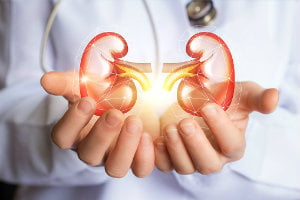Kidney Care News to Know: More Job Opportunities for New Nephrologists
 U.S. Renal Care Names Michael Huguelet Executive Vice President & Chief Development Officer
U.S. Renal Care Names Michael Huguelet Executive Vice President & Chief Development Officer
Huguelet previously held positions with North Star Anesthesia and DaVita. Prior to becoming involved in the kidney care space, he was involved in investment banking. The executive vice president and chief development officer is a newly created position for U.S. Renal Care.
Source: Nephrology News & Issues
Report: More Job Opportunities for New Nephrologists
A report from the George Washington University Health Workforce Institute reveals perceptions of job opportunities and salaries have improved among nephrology fellows. Researchers also found a decline in the number of respondents who changed their plans because of limited nephrology job opportunities. A majority of fellows said they would recommend nephrology to medical students and residents.
Source: Nephrology News & Issues
Study: Young Adults with Kidney Failure Have a Lower Quality of Life
Quality of life was worse for those on dialysis than for those who had received a kidney transplant, according to researchers. That’s because young adults on dialysis were more likely to be unemployed and living in the family home and were less likely to be married or have a partner.
Source: Nephrology News & Issues
ESRD Patients Have High Rates of Infectious Endocarditis
A new study has found patients with ESRD have higher rates of infectious endocarditis, with hemodialysis patients being most prone to the condition. Kidney transplant patients had less than half the risk of developing infectious endocarditis. Vascular access types also impacted infection rates. Central venous catheters had more than double the infection rate than those with arteriovenous fistulas.
Source: Renal & Urology News
Intensive Glycemic Control is no Better at Slowing Kidney Disease
Researchers found that in type 1 and type 2 diabetes patients, intensive glycemic control is no better at slowing the progression of kidney disease or preventing early death than the standard control. Researchers questioned whether strict glycemic control was necessary for preventing complications.
Source: Renal & Urology News




